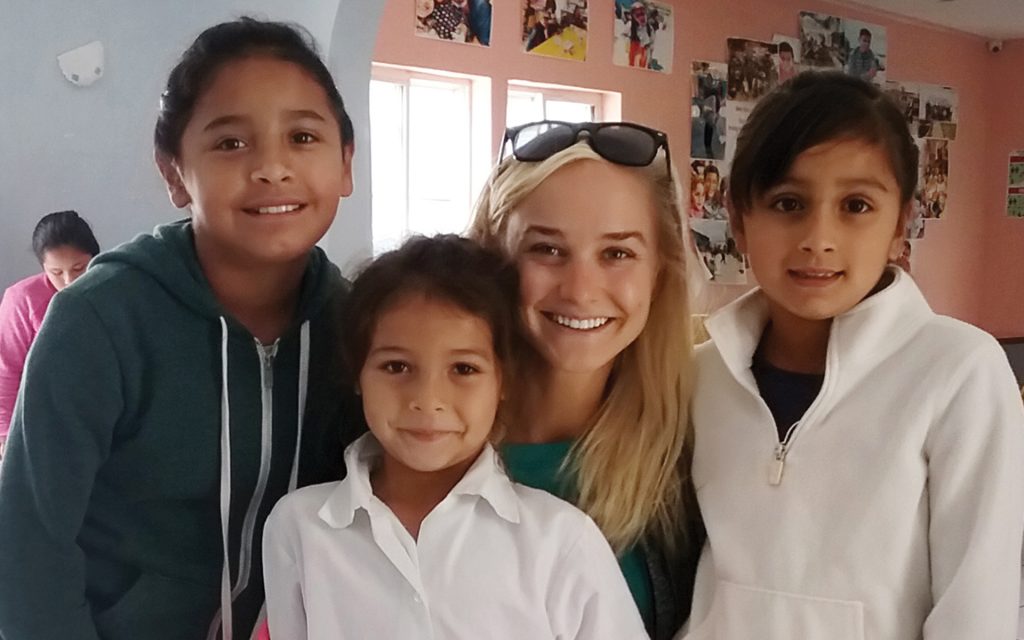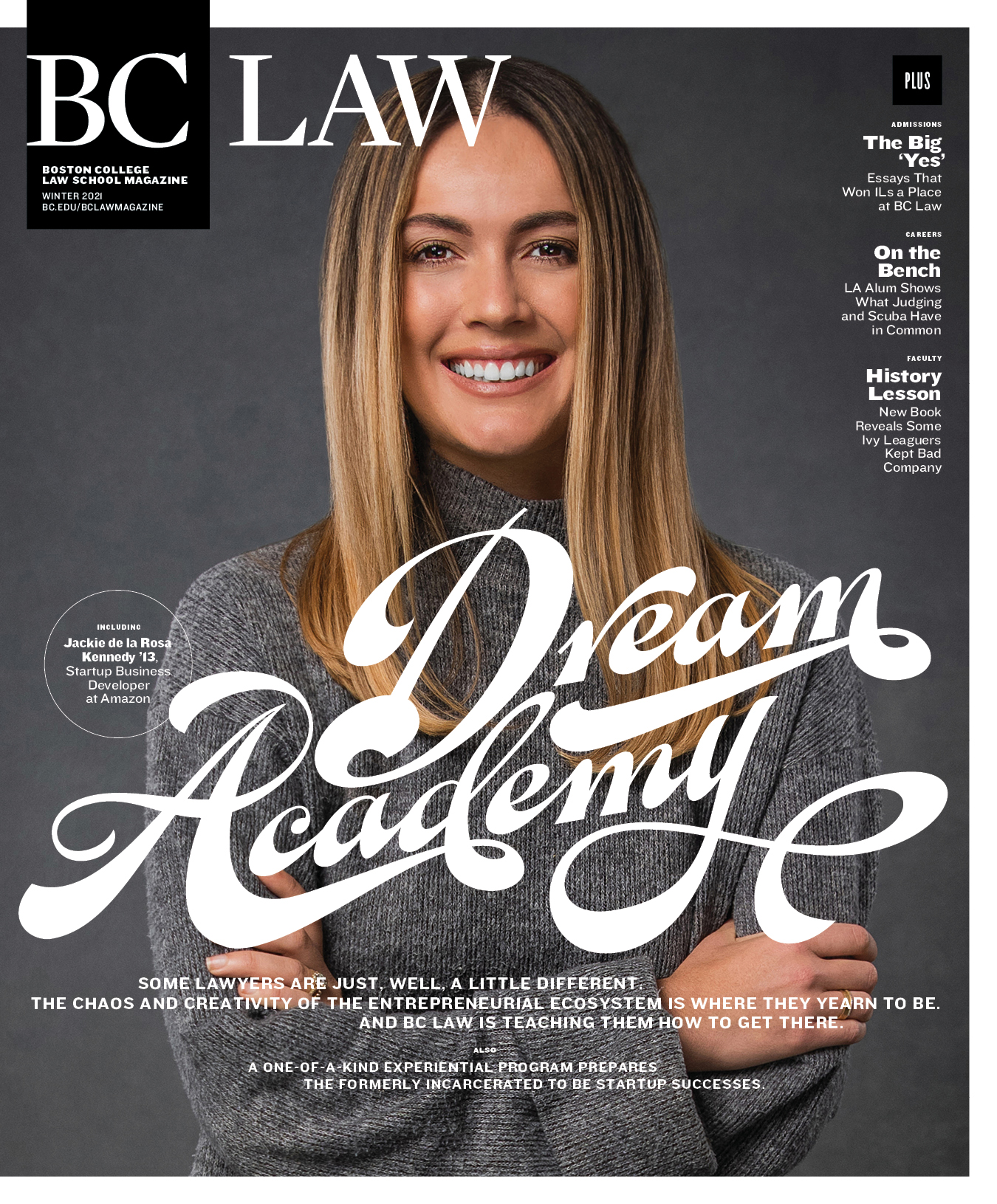In the fall of 2020, amidst the global pandemic that cast a shadow of economic uncertainty over many Americans, Boston College launched the one-year Be a Beacon campaign to double down on its commitment to financial aid and to ensure that many of the promising students who journey here each year are still able to attend.
As part of that effort, Boston College Law School hosted a virtual conversation open to all alumni to highlight the heightened need of our law students. The talk featured Dean Vincent Rougeau, Boston College trustee Marianne Short ’76, Jim Champy ’68, and two students who are the beneficiaries of financial support. Here, second-year student and recipient of the Francis D. Privitera ’56 Law Scholarship Julia Sauve ’22 talks about how she arrived at BC Law and how her future has been shaped by her time on campus.
Julia Sauve, in her own words
I graduated from Boston College in 2014, but my path back to attend law school was anything but a straight line. It started about nine years ago during one of my college summers when I worked in an orphanage and school in Tanzania. Teachers sharpened pencils with pocket knives. The school had no water or plumbing. This was one of my first experiences with children living in extreme poverty. The image of the impoverished child was quickly imprinted in my mind, and it was one I would not easily forget.
Two years later, I spent nine months in an orphanage in Vietnam, where I helped the house staff change diapers and feed and bathe the toddlers and babies. In the afternoons, I tutored math and English inside a few tiny windowless rooms.
“Although I never would have imagined it, at twenty-five years old I actually had temporary legal custody of children in Mexico, none of whom spoke English, and virtually all of whom had had a traumatic life to date.” —Julia Sauve
When I came back home, I worked briefly for a former BC professor doing paralegal work at a family law firm in Boston, but I still felt a strong desire to do more. I was drawn to the US–Mexico border region, as I knew this was an area that many support organizations and foreign volunteers stayed away from due to its reputation for crime and violence.
I ended up at an orphanage in Tijuana, and my first visit there was shocking. Yet despite the squalor and disarray, I knew immediately that this was where I needed to be. I ended up staying for two-and-a-half years, during which time I came to realize that the troubles were even darker than I had originally thought, in the form of exploitation and sexual abuse of the children. After seeking out the necessary help to get this operation shut down, I opened a new home for the children to live in while we found them longer term care.
I obtained my Mexican residency, found a facility, furnished it, hired house staff, and organized transportation, medical, and educational needs. Although I never would have imagined it, at twenty-five years old I actually had temporary legal custody of children in Mexico, none of whom spoke English, and virtually all of whom had had a traumatic life to date.
Passion fuels drive, and these experiences have fixed within me a deep sense of responsibility for the world’s young people and a desire for justice on their behalf. I left Tijuana with a wish to supplement my passion with the knowledge and skills that would enable me to make more meaningful change.
Back in Boston, I only applied to one law school—BC Law. I was intent on making my dream a reality. I couldn’t feel more grateful to be here, and my experience as a student only reaffirms that this is where I am meant to be. However, none of it would be possible without the support I have received. I am a recipient of the generosity of others, and I hope to use the opportunities provided by my degree to extend similar benevolence going forward.



